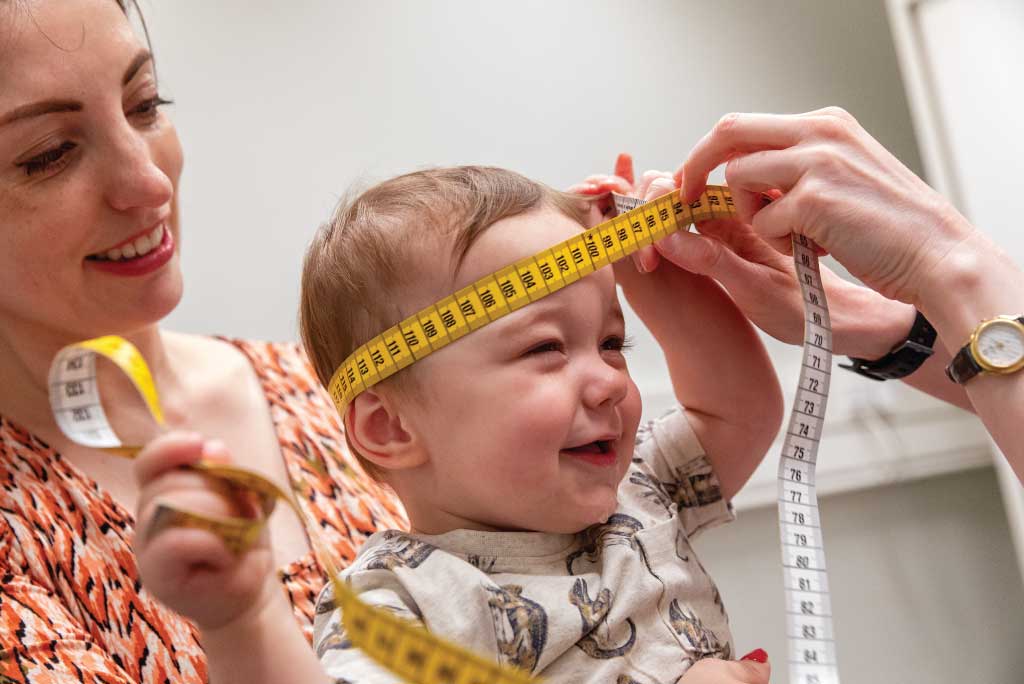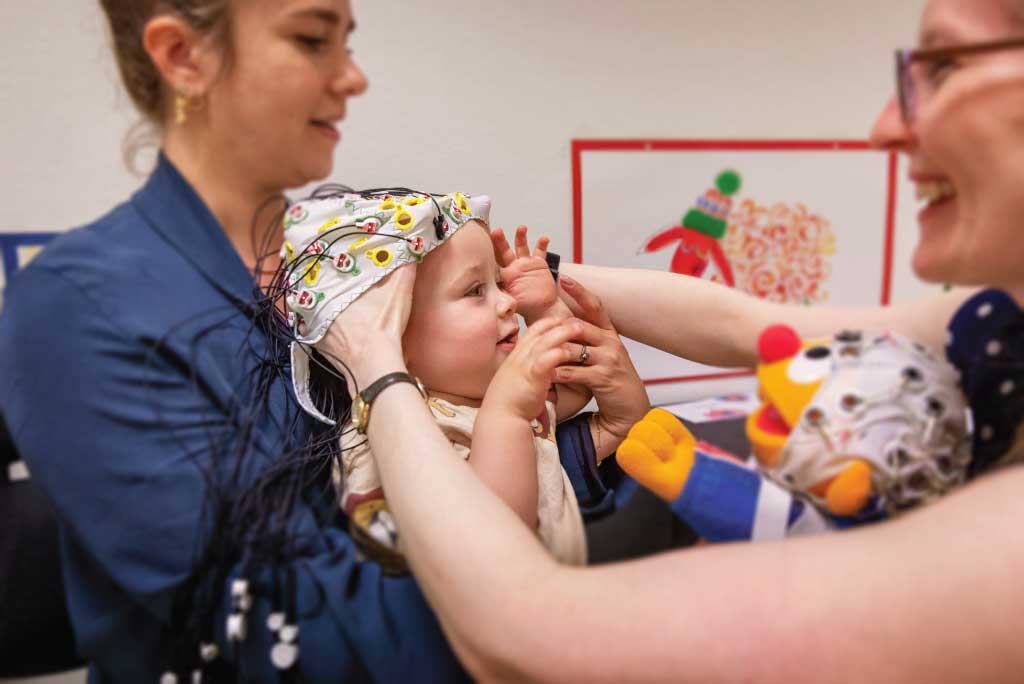Anyone that becomes a parent witnesses one of life’s greatest miracles: While babies seem utterly helpless at birth, they completely transform within a year. The newborn who could only stay awake for half an hour at a time, then falling asleep completely exhausted from just looking around, is now a lively toddler. One who waddles around, points at things, plays peek-a-boo, learns new words at a breathtaking pace, giggles and laughs, but also screams in frustration when he or she doesn’t get what he/she wants. How is this possible?
BabyBRAIN Research
In the BabyBRAIN group we try to find an answer to this question. Using advanced research methods, such as eye tracking or measuring brain activity, we investigate the mechanisms underlying the social and cognitive development of babies. For example, we study how babies learn new things by exploring their environment, or how they learn from and during interaction with others. We would also like to understand what happens differently in the development of young children who are diagnosed with autism.


Optimal development
Ultimately, our goal is to use our knowledge to stimulate the development of young children and to help create an environment in which every child can develop optimally.
Read more?
Poli, F., Mars, R.B., Serino, G., & Hunnius, S. (2020). Infants tailor their attention to maximize learning. Science Advances, 6, eabb5053.